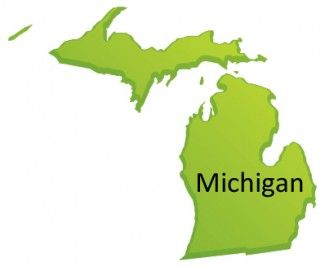What is the federal government looking for when determining whether to bust a medical marijuana dispensary or grow operation?
That’s the $1 million question in California, where the Obama administration has launched a confusing crackdown on MMJ that has left the medical cannabis community scrambling to figure out why certain operations have been targeted and others left alone.
The feds initially seemed to be targeting dispensaries and related businesses that are violating state MMJ laws. But dispensaries that are in compliance with the law have been caught up as well, with little public explanation of why.
Now, we have some insight into what could trigger a raid or investigation.
The federal government sent out an internal memo outlining “factors that all four California U.S. Attorneys Offices … agree may render a particular marijuana case suitable for federal prosecution.” While the memo was not intended for the public or the MMJ industry, the pro-pot group Norml obtained a copy of the communique and posted it online.
The memo is meant to help federal law enforcement officials and partners in California determine “whether a particular marijuana case has significant potential for federal prosecution.” It goes on to state that the information is meant only as guidance and is not a directive. But it’s the best indication yet of what will trigger a knock on the door by federal agents.
Here are some highlights from the memo relating to the prosecution of growers:
– Operations that have at least 1,000 marijuana plants face the highest risk, as they have the “quantity necessary to trigger the ten-year mandatory minimum sentence can be clearly proven and also include additional factors that reflect a clear federal interest in prosecution.”
-If an operation has less than 1,000 plants, the government advises against prosecution unless the charges include more than just marijuana growing. Operations with less than 500 plants face the lowest risk of prosecution.
– Operations that cause significant damage to the environment or cause health concerns, are located near youth facilities (such as schools), generate large profits that might be tied to tax evasion or money laundering, or incorporate firearms and other weapons into their security infrastructure can be prosecuted.
– The feds recommend cracking down on growers with “provable ties to an international drug cartel” or gangs, those cultivating a large amount of pot in California for distribution in other states, and individuals with criminal records.
Here are highlights relating to the prosecution of dispensaries:
-Medical pot centers that are not compliant with state laws (those that are, for example, selling to people without doctors’ recommendations) face the highest risk of prosecution. The memo, however, advises that selling marijuana for a profit – which is banned by state laws – is likely not enough of a reason for prosecution on its own.
– Dispensaries complying with state laws can face federal action as well, particularly if they sell more than 200 kilograms or 1,000 plants annually; have pot grown on federal or tribal land in their inventories; funnel profits to support other criminal activity; implement firearms and other weapons into their security infrastructure; hook up with physicians who prescribe medical pot “without plausible legitimate justification; employ workers under 18; or sell to minors under 21
– The feds recommend targeting stores run by owners who have significant criminal histories or are tied to street gangs engaged in drug trafficking
– Large profits alone are not justification for federal prosecution, unless the dispensary is engaged in money laundering or tax evasion.




